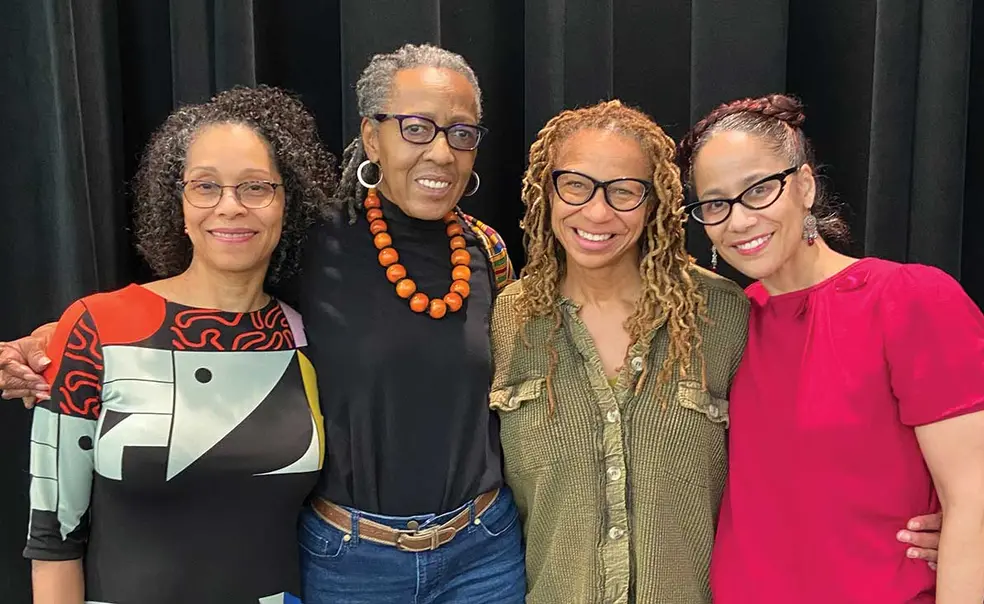Class Close-Up: Students Connect With Local Black Theater Institution
During the racial reckoning that followed George Floyd’s murder at the hands of police in 2020, Jane Cox, director of Princeton University’s theater program, had an idea.
“I was spending a lot of time in rooms with mostly white people wringing our hands [and asking], ‘What can we do? How can we be better? How can we learn?’ ” she said. Her thoughts turned to successful institutions led by artists of color, many of which have been around for several decades: “Maybe we could learn some lessons from those institutions.”
For example, the Tony Award-winning Crossroads Theatre Company. Despite its location just 20 minutes away in New Brunswick, the University had no prior relationship with the Black institution.
Cox, who is white, approached Crossroads and eventually connected with Sydné Mahone, director of play development at Crossroads from 1985 to 1997 and creator of the Genesis Festival of New Plays. With the assistance of three grants from Princeton and the support of CLASSIX, an organization dedicated to Black theater, Cox and Mahone’s new class, “Storytellers — Building Community Through Art,” was born.
In addition to researching the Black Arts Movement and Black theater, the eight enrolled students are scheduled to see plays by Black theater-makers and have written and performed their own creative works. Another important piece of the class is a series of six panel discussions during which the students are meeting with and hearing from some of the leaders who founded Crossroads in 1978 and worked there during the organization’s early years.
Panelist Faedra Chatard Carpenter teared up as she reflected on her time at Crossroads. “I felt held and lifted at the same time,” she told the class.
Chemistry major David Ramirez ’22 was inspired by the Crossroads founders’ success. “They had to run their own show, run their own business, take out grants, work really late nights, work with this unideal space. And through that all they flourished in some amazing, impossible way,” he said. “You get the sense that no matter what was thrown at them, it almost didn’t matter. Whether or not they could do it was never even a question.”
Rather than setting predetermined goals for the new partnership between Princeton and Crossroads, the instructors are encouraging their students to suggest potential next steps. So far, a shared interest in new play development has emerged.
“The challenge is really how does a predominantly white institution like Princeton thoughtfully build a relationship with a predominantly Black institution?” Cox said. “That’s really the heart of it, and I think something that our students need to really be thinking about and wrestling with for this country to take the next step forward.”










No responses yet